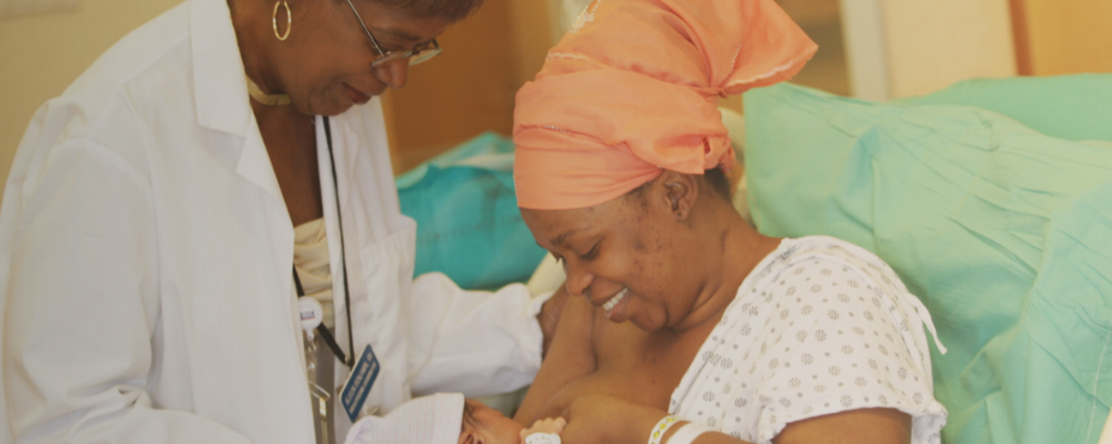
Advancing Birth Equity in Los Angeles County: Clinic Interview Findings and the Impact of Structural Racism in Black Neighborhoods
- Tracy Delaney, PhD, BS
- Asaiah Harville
Dana Sherrod
Esther Priscilla Ebuehi
Claudia Pacheco
Susan Harrington
Karen Ochoa
Helen Dowling

Across the country, Black women and birthing people continue to disproportionately experience negative birthing outcomes and birthing experiences compared to other racial and ethnic groups.
This report from Cherished Futures, a joint initiative of PHI’s Public Health Alliance of Southern California, Communities Lifting Communities and the Hospital Association of Southern California, explores clinic practices and identify challenges to advancing birth equity for Black families in Los Angeles County. The findings and recommendations are intended to be actionable and leveraged by various decision-makers including philanthropists, policymakers, hospital and clinic leaders, insurance payers, and community advocates.
Key Findings from Clinic Interviews
- Black Patients are Experiencing Multiple Social Stressors
- Complexities surrounding the ability to access regular prenatal care, potential social services involvement, and patient safety were discussed. Each clinic also identified mental health as a critical need among their patients, with some interviewees citing complex family dynamics and social stigma diminishing patients’ willingness to access mental health resources.
- Inadequate Patient Education Creates Confusion and Mistrust
- Many clinic interviewees shared the experience of patients receiving inconsistent messages and information from providers. This highlights a need for clearer, consistent prenatal education throughout the region to support patients’ understanding of prenatal tests and milestones and to support informed patient-centered care.
- Challenges Hiring Black Staff
- Many clinic interviewees identified a need to increase Black representation in all areas of staffing. As this topic was explored, it was noted that bilingual requirements for new hires create barriers to hiring Black staff. Interviewees identified specific areas where Black staff would be most beneficial including physicians or providers, social workers, CPSP staff, and lactation educators.
- Insurance Requirements Create Significant Barriers to Prenatal and Postpartum Care
- All clinics face challenges with navigating insurance company requirements while providing care for their patients.
- Disjointed Health Care Infrastructure Creates Barriers to Continuity of Care
- Among the leading concerns shared by nearly all clinic interviewees was the inability to effectively communicate with hospitals and other providers about shared patients. Lack of shared electronic medical record systems or streamlined communication methods adds to this challenge.
- Black Women Need More Comprehensive, Culturally-Grounded Breastfeeding Support
- Nearly all clinics expressed an interest in addressing Black breastfeeding rates, noting the disparities among their overall patient population.
Recommendations for Short-term and Long-term Change
Short Term Recommendations
- Provide Tailored Patient Support and Education for Black Birthing Families
- Create culturally-congruent patient education tools relevant to pregnancy, birth, and postpartum experiences.
- Develop more comprehensive, accessible breastfeeding support for Black families.
- Improve the Continuity of Care and Integrate Culturally Congruent Providers and Staff
- Develop strategies to increase communication between clinics and delivery hospitals.
- Improve the racial and ethnic representation of clinic staff and providers.
- Leverage the Power of Insurance Payers to Create Change
- Reduce administrative barriers and incentivize birth equity.
Long-term Recommendations
- Improve Neighborhood Conditions to Reduce Stress on Black Families
- Align innovative community investments to address social determinants of health.
- Support the equitable expansion of public transportation to improve quality of life in L.A.’s communities.
- Reduce the climate and health impacts of environmental racism.
Originally published by Cherished Futures for Black Moms & Babies
Work With Us
You change the world. We do the rest. Explore fiscal sponsorship at PHI.
Support Us
Together, we can accelerate our response to public health’s most critical issues.
Find Employment
Begin your career at the Public Health Institute.


